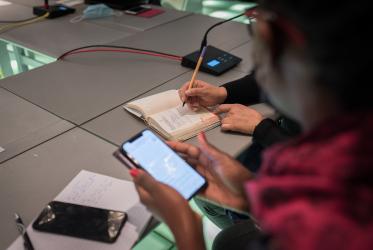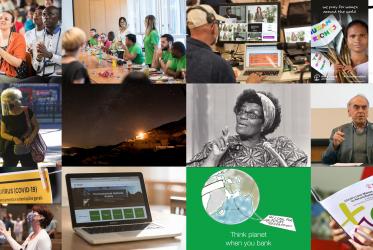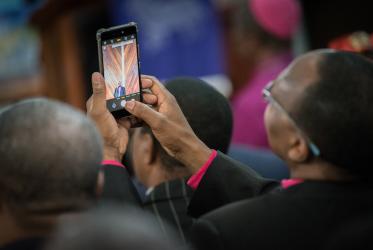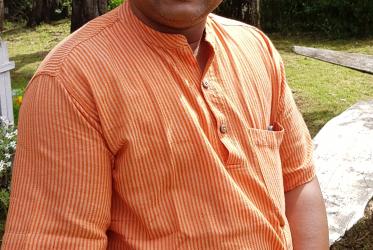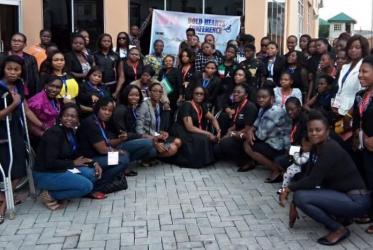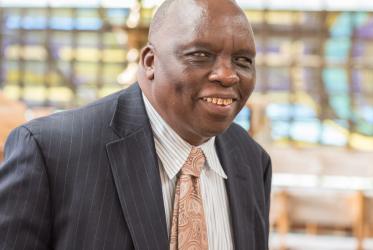Displaying 1 - 20 of 36
Promoting human dignity through art
06 September 2022
Women with disabilities want to belong in churches
31 August 2022
In a COVID-stricken world, “everyone is important”
23 October 2020
Advancing a disability-inclusive response to COVID-19
21 April 2020
Dr Samuel George: “Ensure all are included"
12 June 2018
"We have our work cut out for us"
10 August 2017
Sam Kabue: from the village to the world with eyes wide open
27 October 2016
